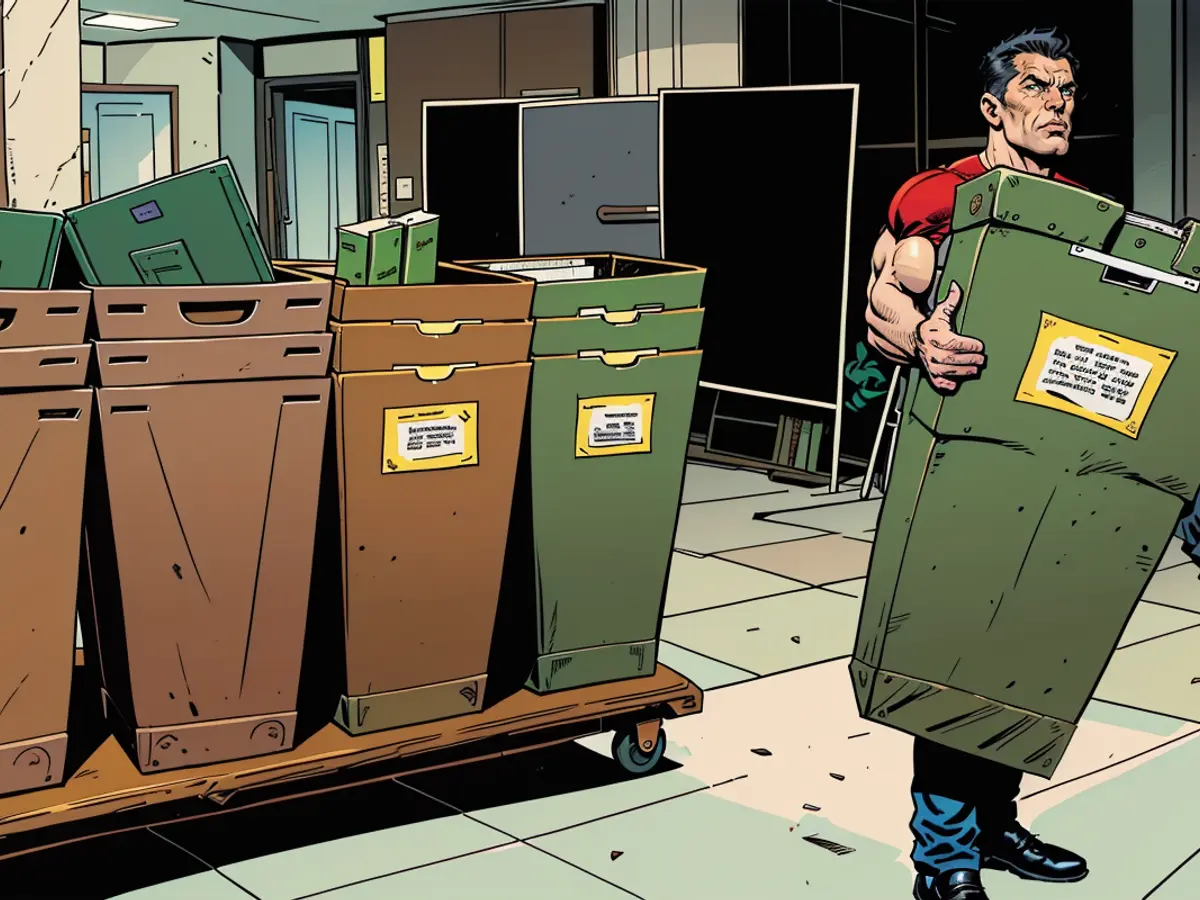Municipal Reform - Greens consider municipal administrative reform necessary
Green faction leader Pia Schellhammer considers reform of fine-grained municipal administrative structures in Rhineland-Palatinate necessary. "Our offices must become more citizen-friendly, digital, and efficient," Schellhammer told the German Press Agency in Mainz. "By adapting territorial structures to current circumstances and challenges, we can support the development towards a more modern and effective administration." Rhineland-Palatinate has the smallest municipal structures in Germany.
The SPD-led traffic light state government is focusing on inter-communal cooperation and voluntary mergers. The results from the model project on inter-communal cooperation confirmed the value of these cooperations, writes Interior Minister Michael Ebling (SPD) in his response to Schellhammer's inquiry on the further development of the communal and administrative reform. Territorial changes are not being pushed forward at the moment. However, the state government and the municipal peak associations have agreed to support the communes in expanding these cooperations.
Fusion premiums for voluntary mergers of municipalities
"In larger administrative units, we see the opportunity to improve the quality of administration, hire sufficient qualified staff, and find enough people who are willing to take on political offices," Schellhammer emphasized. The decreasing number of candidates for the office of mayor or mayor and fewer election lists speak in favor of larger communal structures. "If the selection of political representatives is getting smaller, that's not a good sign for a lively democracy." In larger territorial structures, democratic forces could be bundled.
The Green faction leader in the state parliament praised that "the first municipalities in the Eifel want to go the way of voluntary fusion." The traffic light state government is supporting these efforts with a consulting structure. "Fusion premiums create additional important incentives to take this meaningful step," Schellhammer said.
The height of this support is "primarily dependent on the financial situation of the involved territorial corporations," explains the Interior Minister. In the context of the communal and administrative reform (KVR), the majority of voluntary territorial changes have been supported on the level of the associations of municipalities with around two million euros, usually over several budget years.
A report on territorial reform caused a stir in 2018
A report on territorial reform caused a stir in 2018. In it, scientists had proposed several scenarios for the 24 districts: a drastic reduction to a few large districts (eight to ten), to 19 or to 14 districts. The number of free cities was to be reduced from twelve to five. Frankenthal would have become a part of Ludwigshafen.
Scientists see advantages in small territorial corporations.
Small municipalities, like in Rhineland-Palatinate, are essentially more meaningful in local politics, according to political scientist Norbert Kersting's assessment. "The smaller the units, the more influence one can take and the closer the contact to the candidates," the scientist stated before the communal elections in June. "Problems can be solved decentrally better, as they are better known locally." Angelika Vetter, a social scientist from Stuttgart, added: "From a democratic perspective, it is also positive to evaluate the fact that many mandates are given out."
However, the disadvantage is that for problem-solving in small towns and even medium-sized towns, often resources and personnel are lacking, Kersting pointed out. A solution could be intercommunal cooperation, as attempted in Rhineland-Palatinate. Another solution could be a large territorial reform like in the 1970s in North Rhine-Westphalia and Hesse. However, this brought much resentment and criticism. "Large entities lead to identity loss."
Are the Verbandsgemeinden too small?
Bavaria took a third way by transferring competencies to the district level, Kersting noted. "This shifts local decision-making authority, but the communes remain independent and not just a city district. For example, the swimming pool is built only in the district." This transfer of competencies is also the idea of the Verbandsgemeinden in Rhineland-Palatinate. "However, these may still be too small and lack the clout, so that at decisions, efforts are still made to serve individual communities as much as possible."
- Green Party's Michael Ebling, the Interior Minister in Rhineland-Palatinate, agrees with Schellhammer's views on strengthening municipal structures, stating, "Fusion premiums create additional important incentives to take this meaningful step."
- The SPD-led state government in Rhineland-Palatinate supports the fusion of smaller municipalities, like the ones in the Eifel region, to form larger territorial corporations.
- Political scientist Norbert Kersting argues that small municipalities, such as those in Rhineland-Palatinate, have advantages in local politics, citing greater influence and closer contact to candidates.
- However, Kersting also points out that small towns often lack resources and personnel for problem-solving, suggesting intercommunal cooperation or a large territorial reform as potential solutions.
- The question of whether the Verbandsgemeinden in Rhineland-Palatinate are too small and lack the necessary clout remains a topic of debate, with some proposing a transfer of competencies to a district level, as seen in Bavaria.








